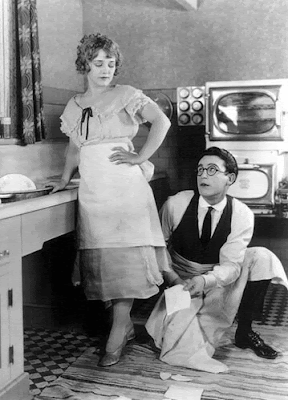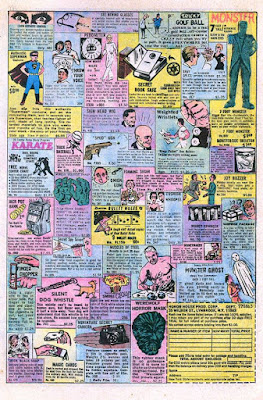At long last, I was able to post the clip where Harold refers to his screen alter ego as THE GLASS CHARACTER. Almost everyone else referred to "the glasses character", and no one is sure why Harold didn't, but it made a much more poetic name for my novel about his life and work (not to mention this blog and a Facebook fan page!):
The Glass Character: a celebration of Harold Lloyd
I just noticed several more very positive reviews on Amazon.com (though they didn't appear on Amazon.ca, which is why I never saw them!) So here they are, folks. . . I have to make the most of this, as the book had a very modest release and never reached the silent film devotees I had hoped for (nor was it made into a movie, which really ran me over - but I must rise again!).
The Glass Character by Margaret Gunning Amazon.com paperback edition
The Glass Character by Margaret Gunning Amazon.com Kindle edition
Reviews on Amazon.com
Reviewed in the
Having become recently absorbed, nay, obsessed by all things Harold Lloyd I found myself drawn into Muriel's world---and what a world! I think one would be hard pressed to find a novel that captured the zeitgeist of the early years of motion pictures. The author did a superb job of balancing the events in Muriel's story with Harold's life. I was hooked and highly recommend it to anyone who likes the silent era of filmmaking, smart storytelling and the delicious Harold Lloyd :-)
Reviewed
in the United States April
27, 2014
In
case the name doesn't ring a bell, he's the guy with the straw hat and Woody
Allen glasses, in the suit, dangling from a clock on the side of a building so
far above a busy avenue the cars below look like ladybugs on wheels.
Harold Lloyd.
Movie comedian of the silent 1920s. Called himself the "Glass Character" because his trademark glasses were fake. No glass in them. The guy was a nut. Blew one of his hands to Kingdom Come fiddling with what he thought was a stage prop bomb. It was real. Deliberately gave himself powerful electric shocks to get his hair to stand straight up. Did his own stunts--the clock dangle, the shocked hair, pretending to trip and stagger on building ledges up in the sky, netless--a brave, some would say foolhardy, genius. Nut.
Knowing this and being acrophobic, I can't watch his movies anymore. It even scares me to look at the photos. I'll let Margaret Gunning watch the movies and look at the photos, and I'll read her reports. Well, then again, I don't have to anymore. I've read her book, "The Glass Character". It's all in there.
Margaret, poor girl, is in love with Harold Lloyd. It started out as just a fascination with soundless images. Love snuck up and struck her dumb somewhere amid the exhaustive research she was conducting for a book about what was then still just a fascination. Love. Alas. Margaret is happily married and has two lovely daughters and four darling grandchildren, yet is far too young to leap the gap into the day when her beloved Harold held sway with the girls of a baby
When we stepped off the carpet in la la land I saw that Margaret had changed. No longer the familiar author of two of my favorite novels--"Better than Life", and "Mallory"--she'd become sixteen-year-old Jane Chorney, a virgin and erstwhile soda jerk in Santa Fe, New Mexico, with a terrible crush on movie idol Harold Lloyd. Soon after we landed, Margaret /Jane (and later "Muriel", as you will learn) decided to pack up her meager belongings, cash in her chips (two cents shy of fifty bucks) and head to Hollywood and into the arms of her eternal love. I might have tried to instill sense in her were I anything more than invisible eyes and ears. Unfortunately I had lost my voice and corporeal substance upon alighting in the
So it was off to
I won't say more. I took no notes and had to avert my gaze any number of times during moments that really were none of my personal concern. The Glass Character is Margaret/Jane/Muriel's story, not mine. What I did see and hear, and learn during our holiday in history is captured with such lucid, insightful poignancy I can't help but wonder if Margaret didn't in fact remain there, dictating her journal to a holographic image of herself in the distant future tapping on a keyboard somewhere in a place called Coquitlam, B.C.
Reviewed
in the United States April
12, 2014
I
couldn't resist turning page after page when I started reading this novel. It
is as fast-paced, frenetic, frantic, as the jumpy quick movements of silent
film action. To say this book captures the spirit of the silent film era, of
the flashing, double-dealing, over handed and underhanded Hollywood
I've read Gunning's two
earlier novels, Better than Life, and Mallory. The Glass Character is far more
ambitious in its depth and breadth. It is longer, more expansive than the early
works. Gunning has presented her master piece, in this novel. She fully comes
of age as a serious, yet entertaining writer, who displays a lovely choice of
words and a often refreshing turns of phrase.
If you haven't read Gunning yet, start. If her latest novel doesn't win, or at least get nominated for the top literary prizes, there is no justice.
Don't miss an engrossing, absorbing read. By the way, you'll definitely want to hit YouTube to find full length Lloyd films, outtakes, and documentaries.
Don't leave yourself hanging from the clock hand, get the silent era spirit and enjoy the book!
If you haven't read Gunning yet, start. If her latest novel doesn't win, or at least get nominated for the top literary prizes, there is no justice.
Don't miss an engrossing, absorbing read. By the way, you'll definitely want to hit YouTube to find full length Lloyd films, outtakes, and documentaries.
Don't leave yourself hanging from the clock hand, get the silent era spirit and enjoy the book!
One
person found this helpful
Reviewed
in the United States December
18, 2014
You're
in for a real treat with Margaret Gunning's Novel "The Glass
Character"
If you enjoy traveling back to the time when many of our parents frequented silent films as the prime source of entertainment, then you will love to bury your nose in this madcap treatise on the time and personalities of that era.
If the name Harold Lloyd doesn't ring a bell, you will know him intimately by the time you reach the last page.
We know so much about the entertainment industry today, but so little about what went on behind the scenes of the Silent Film era. You will be shocked by Gunning's expose of that wildcap period of our history.
Don't miss this treat from the pen of a very gifted author.
































